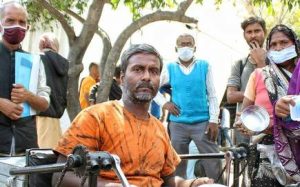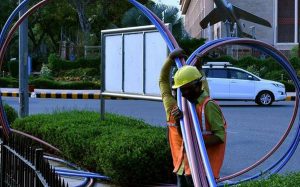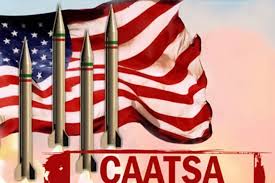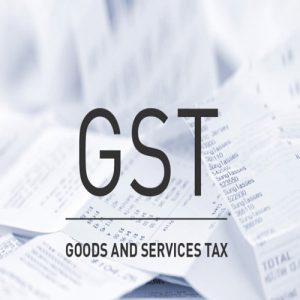Today Current Affairs: 30th October 2021 for UPSC IAS exams, State PSC exams, SSC CGL, State SSC, RRB, Railways, Banking Exam & IBPS, etc
Table of Contents
Bilateral Trade and Investment Agreement (BTIA):

The government officials have revealed that India and the European Union (EU) are set to resume negotiations for a Bilateral Trade and Investment Agreement (BTIA). The BTIA talks have been suspended since 2013.
- However, at India-EU Leaders’ Meeting earlier this year, both countries agreed to relaunch free trade negotiations for the BTIA and also adopted a Connectivity Partnership.
About BTIA:
- India and EU had launched talks for having a wide-ranging Free Trade Agreement (FTA), officially called broad-based BTIA, long ago in 2007.
- The BTIA was proposed to encompass trade in goods, services and investments.
- However, the talks stalled in 2013 over differences on market access and movement of professionals.
- The EU was India’s largest trading partner in goods 2019-20, ahead of China and the US, with total trade close to USD 90 billion.
- With the signing of the BTIA , India and the EU expect to promote bilateral trade by removing barriers to trade in goods and services and investment across all sectors of the economy.
- Pursuit of self-reliance has been accelerated by the Covid-19 crisis under the Atmanirbhar Bharat Mission. This is perceived by the European Union as India’s “protectionist stance”.
- India may find it difficult to meet the sustainable standards in labour and environment on which the EU now lays greater emphasis.
- India seeks to signal that it means business and is not averse to signing trade agreements after it opted out of the Regional Comprehensive Economic Partnership (RCEP) at the last moment.
- The EU, in turn, wants to diversify its value chain away from China to India and, hence, there is interest on its part also to have a trade agreement with India.
Assistance To Disabled Persons Scheme:

A Samajik Adhikarita Shivir(social empowerment camp) for distribution of aids and assistive devices to Divyangjan under the ADIP (Assistance to Disabled Persons) Scheme was organised in Punjab.
- Divyangjan or Divyang: Earlier, in 2015 the Prime Minister decided that persons with disabilities should no longer be referred to as disabled persons or viklang (someone with non-functional body parts) instead they will be referred to as Divyangjan or Divyang (one with a divine body).
- Ministry of Social Justice and Empowerment is the Nodal ministry
- It has been in operation since 1981.
- The scheme follows the definitions of various types of disabilities as given in the Persons with Disabilities (Equal Opportunities, Protection of Rights and Full Participation) (PWD) Act 1995.
- The PWD Act was replaced by the Right of Persons with Disabilities Act 2016.
- Objective: To assist the needy disabled persons in procuring durable, sophisticated and scientifically manufactured, modern, standard aids and appliances that can promote their physical, social and psychological rehabilitation by reducing the effects of disabilities and enhancing their economic potential.
- Grants-in-aid are released to various implementing agencies (Artificial Limbs Manufacturing Corporation of India, National Institutes, Composite Regional Centres, District Disability Rehabilitation Centres, State Handicapped Development Corporations, Non-governmental Organizations (NGOs) , etc.) for purchase and distribution of aids and assistive devices.
- Assistance: Aids/appliances which do not cost more than Rs. 10,000 are covered under the Scheme for single disability.
- However, in some cases the limit would be raised to Rs.12,000. In the case of multiple disabilities, the limit will apply to individual items separately in case more than one aid/appliance is required.
- Full cost of aid/appliance is provided if the income is up to Rs. 15,000 per month and 50% of the cost of aid/appliance is provided if the income is between Rs. 15,001 to Rs. 20,000 per month.
Indian Telegraph Right Of Way (Amendment) Rules, 2021

The Central Government has notified the Indian Telegraph Right of Way (Amendment) Rules, 2021.
- The rule aims to incorporate the provisions related to nominal one-time compensation and uniform procedure for establishment of Overground Telegraph Line in the Indian Telegraph Right of Way Rules, 2016.
- The amount of one-time compensation for establishment of an overground telegraph line will be a maximum one thousand rupees per kilometre.
- Right of Way (RoW): These amendments will ease RoW related permission procedures for establishment and augmentation of digital communications infrastructure across the country.
- Earlier, the RoW Rules had covered only underground Optical Fibre Cable (OFC) and mobile towers.
- Fees: There will be no fee other than Administrative fee and Restoration charges for establishing, maintaining, transferring or shifting the underground and overground telegraph infrastructure.
Indian Coast Guard Ship ‘Sarthak’:

The indigenously built Indian Coast Guard Ship ‘Sarthak’ was commissioned and dedicated to the nation on October 28, 2021 at Goa by the Director General of Indian Coast Guard K Natarajan.
- ICGS Sarthak will be based at Porbandar in Gujarat and operate on India’s Western Seaboard under the Operational and Administrative Control of the Commander, Coast Guard Region (Northwest).
- ICGS Sarthak is 4th in the series of five OPVs being built by Goa Shipyard Limited for the ICG.
- These OPVs are multi-mission platforms capable of undertaking concurrent operations. The 105-meter-long ship displacing 2,450 tons is propelled by two 9,100 kilowatt diesel engines designed to attain a maximum speed of 26 knots.
The Draft Amendments To Juvenile Justice Model Rules, 2016:

The Ministry of Women and Child Development has proposed the draft amendments to Juvenile Justice Model Rules, 2016.
- This follows the passage of the Juvenile Justice (Care and Protection of Children) (JJ) Amendment Bill, 2021, in Parliament.
As per the proposed amendments:
- Individuals who receive foreign aid in their personal capacity or as members of an organisation will not be eligible for the membership of Child Welfare Committees (CWCs).
- The central adoption agency CARA will be empowered to issue No Objection Certificates (NOC) for adoptions by NRIs and OCIs.
Overview of the Juvenile Justice (Care and Protection of Children) Amendment Bill, 2021:
- The District Magistrates have been further empowered under the Act to ensure its smooth implementation, as well as garner synergized efforts in favour of children in distress conditions.
- It means that DMs and ADMs will monitor the functioning of various agencies under the JJ Act in every district- including the Child Welfare Committees, the Juvenile Justice Boards, the District Child Protection Units and the Special Juvenile Protection Units.
- The DM will also carry out background checks of CWC members, who are usually social welfare activists, including educational qualifications, as there is no such provision currently.
- The DMs are also to check possible criminal backgrounds to ensure that no cases of child abuse or child sexual abuse are found against any member before they are appointed.
- The CWCs are also to report regularly to the DMs on their activities in the districts.
Serious offences will also include offences for which maximum punishment is imprisonment of more than seven years, and minimum punishment is not prescribed or is less than seven years. - Instead of the court, the District Magistrate (including Additional District Magistrate) will now issue adoption orders.
Juvenile Justice (Care and Protection of Children) Act, 2015:
- The Act was introduced and passed in Parliament in 2015 to replace the Juvenile Delinquency Law and the Juvenile Justice (Care and Protection of Children Act) 2000.
- It allowed the trial of juveniles in conflict with law in the age group of 16-18 years as adults, in cases where the crimes were to be determined.
- The nature of the crime, and whether the juvenile should be tried as a minor or a child, was to be determined by a Juvenile Justice Board.
- It received impetus after the 2012 Delhi gangrape in which one of the accused was just short of 18 years, and was therefore tried as a juvenile.
- The Act streamlined adoption procedures for orphans, abandoned and surrendered children and the existing Central Adoption Resource Authority (CARA) has been given the status of a statutory body to enable it to perform its function more effectively.
Countering America’s Adversaries Through Sanctions Act (CAATSA):

Key lawmakers continue to voice their support for a sanctions waiver for India for its purchase of the S-400 missile defence system from Russia.
- India is likely to begin taking delivery of the S-400 in November, potentially activating U.S. sanctions under a 2017 law, Countering America’s Adversaries Through Sanctions Act (CAATSA).
- Countering America’s Adversaries through Sanctions Act (CAATSA)‘s core objective is to counter Iran, Russia and North Korea through punitive measures.
- Enacted in 2017.
- Includes sanctions against countries that engage in significant transactions with Russia’s defence and intelligence sectors.
- The S-400 Triumf is a mobile, surface-to-air missile system (SAM) designed by Russia.
- It is the most dangerous operationally deployed modern long-range SAM (MLR SAM) in the world, considered much ahead of the US-developed Terminal High Altitude Area Defense system (THAAD).
GST Compensation:

The Ministry of Finance has released ₹44,000 crore to the States and UTs with Legislature under the back-to-back loan facility in lieu of GST Compensation.
- After taking into account earlier release of ₹ 1,15,000 crore (₹ 75,000 crore released on 15th July, 2021 and ₹ 40,000 crore released on 07th October, 2021), total amount released in the current financial year as back-to-back loan in-lieu of GST compensation is ₹1,59,000 crore.
- This release is in addition to normal GST compensation being released every 2 months out of actual cess collection.
- Subsequent to the 43rd GST Council Meeting held on 28.05.2021, it was decided that the Central Government would borrow ₹1.59 lakh crore and release it to States and UTs with Legislature on a back-to-back basis to meet the resource gap due to the short release of Compensation on account of inadequate amount in the Compensation Fund.
18th India-ASEAN Summit:

Prime Minister Narendra Modi participated in the 18th India-ASEAN Summit at the invitation of His Majesty Sultan Haji Hassanal Bolkiah of Brunei, the current Chair of ASEAN.
- Highlighting the milestone of 30th anniversary of India-ASEAN Partnership, the leaders announced the Year 2022 as India-ASEAN Friendship Year.
- Building upon the synergies between the ASEAN Outlook for the Indo-Pacific (AOIP) and India’s Indo-Pacific Oceans Initiative (IPOI), PM and ASEAN leaders welcomed the adoption of the India-ASEAN Joint Statement on cooperation for peace, stability and prosperity in the region.
- On COVID-19, the Prime Minister highlighted that India has contributed medical supplies worth USD 200,000 to ASEAN’s humanitarian initiative for Myanmar and USD 1 million for ASEAN’s Covid-19 Response Fund.
- Prime Minister Modi announced India’s support for establishing the ASEAN Cultural Heritage List.
Sabarmati Ashram Revamp:

Mahatma Gandhi’s great-grandson Tushar Gandhi has moved the Gujarat High Court against the Gujarat government’s ₹1,200-crore plan to redevelop Sabarmati Ashram in Ahmedabad.
- The redevelopment plan involves extending its area from five to 55 acres by relocating residents to nearby areas.
- Tusha Gandhi says, this plan is diametrically opposed to the personal wishes of Mahatma Gandhi.
- The project would lead to the reduction of the shrine and memorial of the freedom movement and turning the ashram into a commercial tourist attraction spot
- The Gujarat government has maintained that it would not change or alter any building on the ashram campus. All heritage buildings would be restored as per Gandhian ethos.
- The government has also maintained that the proposal to redevelop the ashram was not aimed at a takeover but to redevelop it by expanding the areas and creating a minimum infrastructure.
About Sabarmati Ashram:
- Mahatma Gandhi set up the ashram and lived there from 1917 to 1930.
- It was from his base here that Gandhi led the Dandi march also known as the Salt Satyagraha on 12 March 1930.
- Originally called the Satyagraha Ashram, reflecting the movement toward passive resistance launched by the Mahatma, the Ashram became home to the ideology that set India free.




